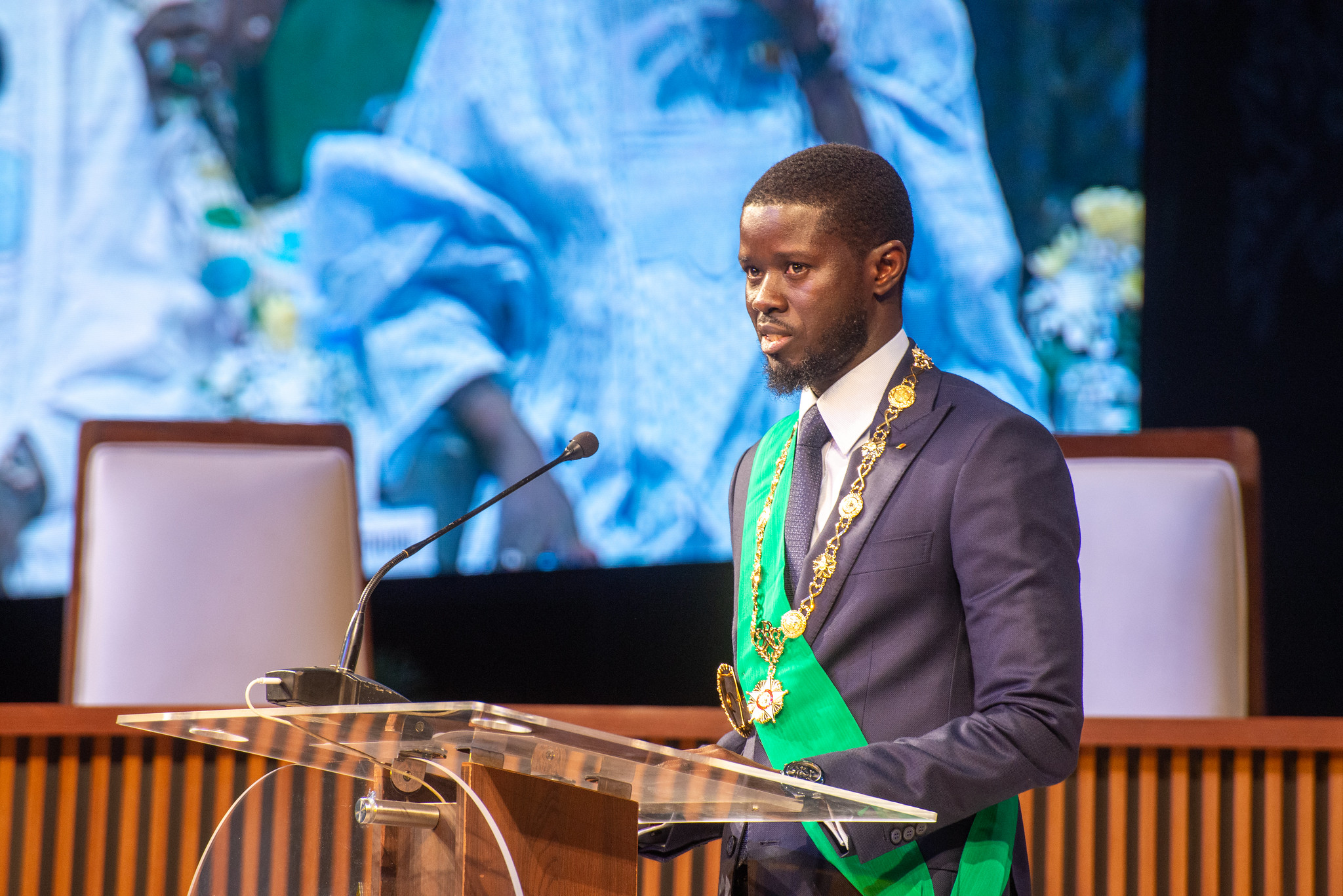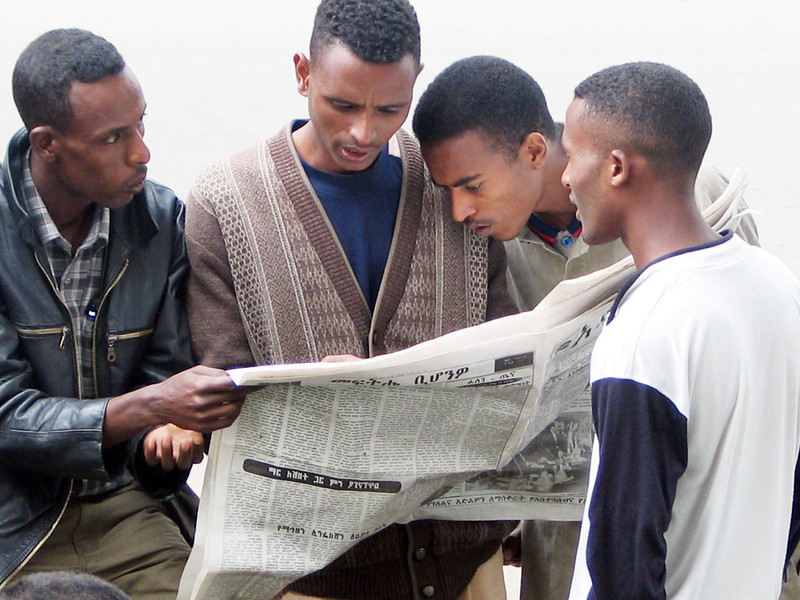We are excited to announce that Brink is now part of Africa Practice. Learn more
On 24 March, Bassirou Diomaye Faye was elected as Senegal’s president, securing victory in the first-round. The peaceful, albeit delayed, electoral process demonstrated the underlying strength of the country’s democracy. In electing a young politician (Faye is 44) with no prior executive office experience, Senegalese have opted for change over continuity. Faye garnered 54.28% of the votes, establishing a solid mandate, although for the moment he lacks a parliamentary majority to implement his reformist agenda.
Faye inherits an economy that has averaged 6% growth over the last four years thanks to the pro-business environment established by his predecessor, Macky Sall. The new president is set to benefit from an acceleration in growth this year, as oil and gas production ramps up. The new administration will also seek to capitalise the potential of the agriculture, mining and energy sectors, but this will be contingent on creating a supportive environment.
In the short-term, Faye will have to contend with high public expectations, especially among the youth, which constitutes his core voting base. Any failure to deliver on promised reforms would lead to popular disillusionment, exacerbating existing socio-political fractures, and prompting renewed anti-government protests.
A president in need of a parliamentary majority
Faye was the first opposition candidate to win a first-round victory in presidential elections in Senegal. He will seek to use this mandate to drive through political and economic reforms laid out in the Senegal Systemic Transformation Project – Faye’s replacement for the Emerging Senegal Plan (PSE) put forward by the Sall administration. The new development plan focuses on five pillars:
- Youth, education, training, entrepreneurship and employment for the youth and women;
- Combating the high cost of living and increasing household purchasing power
- Modernising the justice system, protecting human rights, good governance, transparency and accountability, and electoral reforms
- Promoting the country’s economic sovereignty and prosperity
- Enhancing national unity and solidarity and safeguarding the country’s security, peace and stability
It is on these pressing domestic issues that he will be assessed at the end of his five-year term.
Soon after his inauguration, Faye appointed Ousmane Sonko – a close ally and the architect of his victory – as prime minister and tasked him with forming a government. On 5 April, Sonko announced a team of 25 ministers including technocrats, military officers and the party cadres. Half of the cabinet (13) is drawn from PASTEF, including some of the most strategic portfolios.
Faye appointed Birame Souleye Diop as Minister of Energy, Oil and Gas, and Mines. Diop, a former tax inspector, who is a Vice-president of PASTEF and leader of the opposition coalition Yewwi Askan Wi, will be at the forefront of a planned audit and renegotiation of energy and mining contracts. This comes at an awkward time, with the country about to enter the club of oil-producing nations. Another loyalist, Malick Ndiaye, was allocated the portfolio of Infrastructure and Transport. Previously PASTEF’s Communication Secretary, Ndiaye was tasked with developing new projects and renovating existing infrastructure, while also working to boost transport safety and security. Yassine Fall, an experienced UN diplomat who joined PASTEF in 2018, was made Minister of Foreign Affairs. She is one of the four women who were appointed to the government.
Technocrats include Finance and Budget Minister Cheikh Diba and Economy Minister Abdourrahmane Sarr; although the latter has assumed a vocal stance on the CFA franc – a regional currency backed by France and extensively criticised by Sonko. President Faye has not ruled out the possibility of Senegal leaving the common currency. Additionally, Faye appointed two military officers to lead key portfolios, with General Jean-Baptiste Tine at the security ministry, and General Birame Diop at defence, tasking them with protecting Senegal from Sahel-based Islamist militants.
Meanwhile, Faye rewarded electoral allies from smaller parties with portfolios but excluded major political figures from the government, including former Prime Minister Aminata Touré and the last-minute ally Karim Wade who leads the Senegalese Democratic Party (PDS). Touré or Wade could have been key allies as Faye attempted to build a parliamentary majority in a bid to pass his reformist agenda. At present, this is impossible, since PASTEF and its allies only have 56 out of 165 seats in the National Assembly. We anticipate that Faye will dissolve the legislature once it passes its two-year threshold in July 2024, in line with the constitution, resulting in elections in September.
Booming economy
Faye inherits a well-performing economy. Senegal remains the second most dynamic business jurisdiction in Francophone West Africa, after Côte d’Ivoire. The country could attain 8% GDP growth in 2024 and 10% in 2025, thanks to a boost from oil and gas revenues, according to the International Monetary Fund (IMF). Public debt remains manageable despite having consistently increased over the past decade. While the IMF estimates that Senegal’s debt burden is relatively high, at around 76% of GDP in 2024, the Fund predicts that public debt will fall below 70% of GDP in 2025 thanks to strong growth.
The outlook is underpinned by the start of petroleum production on two key projects. Woodside’s Sangomar’s field is set to produce 100,000-120,000 barrels of oil and 130 million standard cubic feet of gas per day when it comes online in the third quarter of this year. BP’s cross-border Grand Tortue Ahmeyim project, that straddles the border between Senegal and Mauritania, is set to produce 2.3 million tonnes per year of LNG in phase one, and is also expected to start production in the fourth quarter. These projects are expected to collectively generate some XOF 700 billion (USD 1 billion) in government revenues each year.
The new administration is prioritising other sectors such as agriculture (9%), mining (5%) and renewable energy. Faye has pledged to allocate 10% of the government budget for the empowerment of the ministry of agriculture and to prioritise technology and and scientific research to grow the sector over the coming years. Minister of Energy, Oil and Gas, and Mines Birame Souleye Diop is still to unveil his roadmap to attract more investors in the sector, but this will represent a major challenge at a time when Senegal is reviewing agreements concluded by the Sall administration and threatening contract sanctity.
Securing funding for development projects will also depend on the new government’s ties with bilateral and multilateral partners. Right after his inauguration as president, Faye met with IFC Director Makhtar Diop to discuss how the World Bank could support the new administration in sectors such as agriculture, the digital economy and housing. Nevertheless, in his manifesto, Faye has made it clear that his administration would not accept terms from international financial institutions such as the IMF and the World Bank, indicating that concessional loans will need to be inline with locally-inspired reforms, rather than the Washington consensus.
Socio-economic grievances
There are high popular expectations from the new government and Faye is aware of this. Inflation remains a challenge and has undermined living standards. The annual inflation rate in Senegal increased to 3.3% in March 2024 – the highest in six months – up from 2.3% in the prior month. While the previous government had introduced a relief plan that encompassed rent and energy subsidies and price caps on essential commodities such as vegetable oil, sugar and rice, in 2023 it came under pressure from the IMF to remove energy subsidies, which consumed 4% of GDP in the preceding year. Nevertheless, there is little scope to incorporate subsidies in the budget, as Senegal is targeting a reduction in its budget deficit, from 4.9% in 2023 to 3.9% of GDP, in line with its IMF programme.
Job creation will also be essential if Faye is to retain the loyalty of his political power base during his presidency. Although Senegal’s unemployment rate fell from 22.9% in the third quarter of 2022 to 19.5% over the same period in 2023, jobs remain a key political issue, especially for the youth. Faye’s campaign messages of economic reform and anti-corruption strongly resonated with younger voters, who feel that they put the 44-year-old president in power to defend their interests. Youth unemployment rates are higher than the population as a whole, with a third of young people out of work, and thousands risking their lives on perilous journeys to Europe in search of jobs. The government is still developing a plan on youth employment, but in his manifesto, Faye pledged to prioritise vocational education and entrepreneurship and tie curricula in public universities to the country’s economic needs.
Faye’s popular backing provides him with a strong mandate to govern. Nevertheless, he will have to tone down his ambitions in the absence of a parliamentary majority. Faye and Sonko will need to adopt a less radical approach to broaden their coalition, making overtures to parties such as the PDS, in order to secure the majority they need to implement proposed reforms. If Faye and Sonko fail to moderate PASTEF’s radical approach, they will merely serve to block the implementation of the party’s agenda, while reinvigorating opponents of the new administration. If Faye fails, this would leave a large segment of the population – particularly the youth – disillusioned.
Proud to be BCorp. We are part of the global movement for an inclusive, equitable, and regenerative economic system. Learn more



